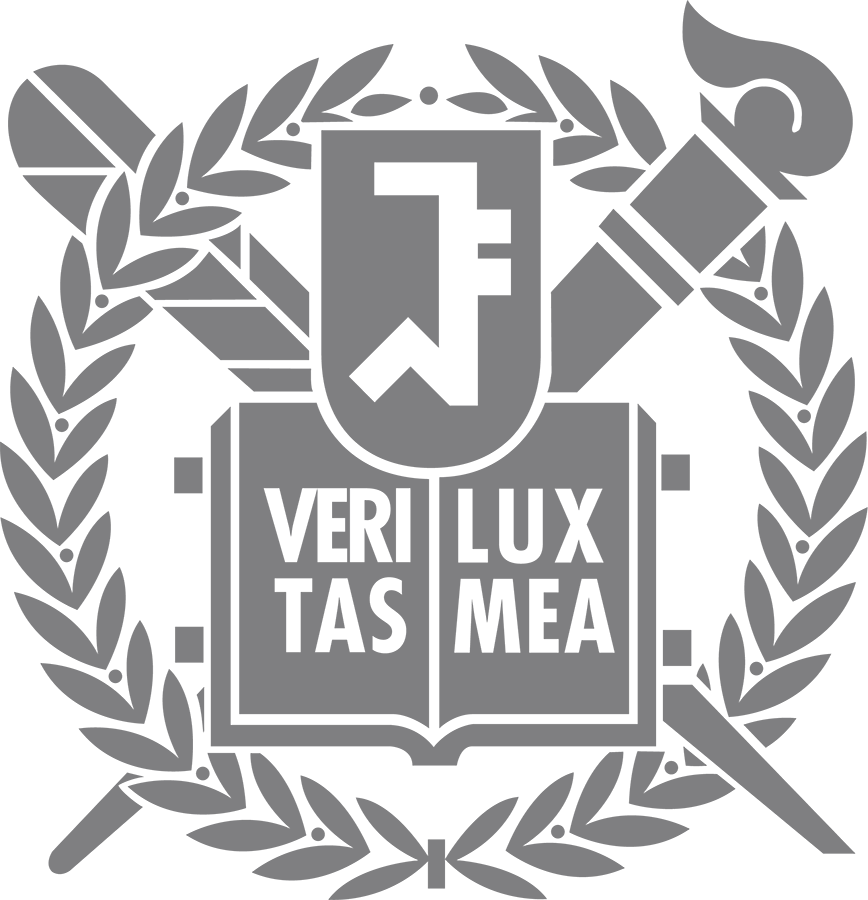Department News
[Seoul Economic Daily] Prof. Heui Jae Pahk "SCI Journal Obsession is Killing Ventures; AI Valley in Seoul Should be Implemented
"SCI journal obsession is killing ventures… Seoul needs AI Valley as its own Silicon Valley"
The entrepreneurial spirit of 20 years ago is gone now
Industry-academic cooperation is not a factor in performance assessment
Universities need a ‘Science and Technology Valley’ like US and China
"Concerned about green belt regulations and lack of consensus”
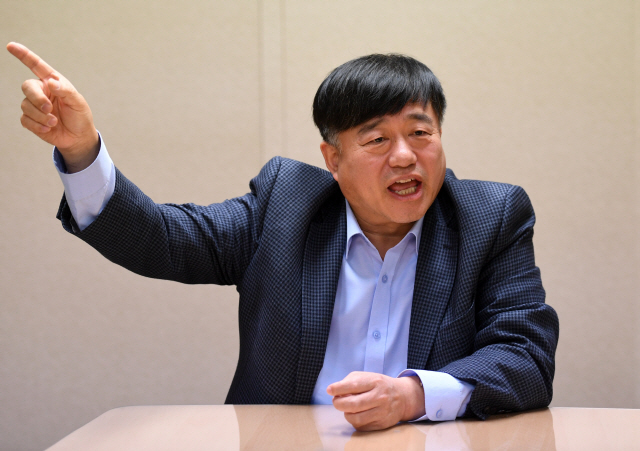
Prof. Heui Jae Pahk (Mechanical Engineering), Head of SNU AI Valley Comission, during his interview with Seoul Economic Daily Nov 2. “During the financial crisis 20 years ago, there was a communal spirit of going through it together, but it’s all gone now.” He emphasized the importance of the innovative entrepreneurial spirit. /Hyung-ju Seong
Korean universities receive overe third of the nation’s R&D funding. In 2018, they received about 6 trillion won (37.5%) from the government R&D funding of 16 trillion won. Next year’s R&D funding is expected to be 27 trillion and 200 billion won. There have been many published articles and patents, but the commercialization of technology has been insufficient. Universities have remained as an ivory tower. This is why, despite the university tuition remaining the same for 13 years, they continue to depend government funding. Universities are failing to drive innovation and growth.
Professor Heui Jae Pahk (58) of the Department of Mechanical Engineering is known for the first Korean university laboratory venture. Currently, he serves as the head of the Seoul National University AI Valley Commission. “During the financial crisis 20 years ago, everyone thought that venture businesses were the way to contribute to the country,” he said during an interview with Seoul Economic Daily November 2nd. “But now, things are getting worse. There is no ecosystem or entrepreneurial spirit that drives new businesses. Universities depend the government, remaining as an ivory tower. They do not encourage innovative entrepreneurs who can shock the country and society.” During the Asian Financial Crisis’ gold-collecting campaign, Prof. Pahk founded an export company and requested the government to allow professors to hold multiple jobs as the company president. Eventually, the company got listed the KOSDAQ.
- University ventures are increasing compared to the past.
△There are no paradigm shifts. They don’t teach entrepreneurship. Innovative new businesses are what helps us all, but theyly care about how many SCI journals have been published. No amount of funding will help the university. I don’t feel like things have changed much from when I first founded the company 20 years ago. There is no passion for new ventures.
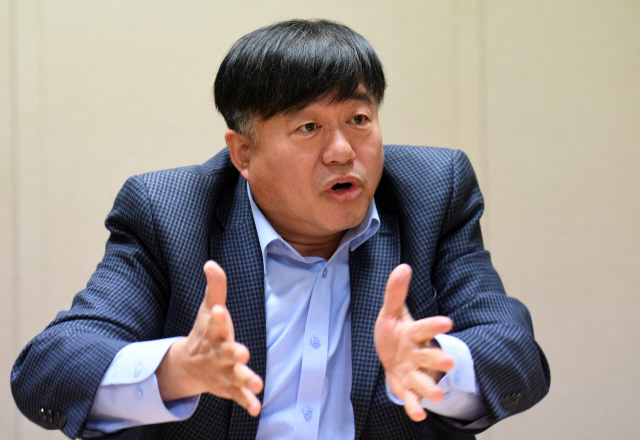
-Why do you think that is?
△Journals are the main factor in employment, promotion, and university rankings. The university authorities basically think that good journal articles are enough. Professors continue like they always have; graduate students are too scared to try new things. The current government is providing generous amounts of funding but it is difficult to see any changes taking place. We should encourage new startups and offer financial help when students want to start new ventures after they graduate. But things are not like that, which is why graduate students shake their heads at the idea of startups. They want to become government employees or work at major companies. Highly educated non-regular employees, including post-doc researchers, all depend government R&D funding. We need to establish an environment where innovative technologies can flourish in the market.
- But universities also found technology holding companies and encourage startups.
△There are too many regulations. Even if you apply for venture company and hold double positions,ly 1 out of 4 applications get accepted, which is discouraging. The policy that the university’s technology holding company must hold more than 20% of total shares of the startup company is also harmful. That is why people found companies under the radar or totally outside the university.
-How can we encourage new ventures?
△If employment depended the success of the venture business and its the contribution to the university, people will found new businesses. We must do away with this obsession with SCI journals. I have seen some journal articles that are pointless. The university must encourage startups and reduce risks, helping with the acquisition of good researchers. The decisions regarding employment, promotion, and tenure should factor in business venture experiences or industry-academia cooperation. Universities care too much about the QS rankings, which is why they have given up startups and industry-academia cooperation. They don’t really look at business venture experiences or industry-academia cooperation even when taking Ministry of Science and ICT R&D projects.
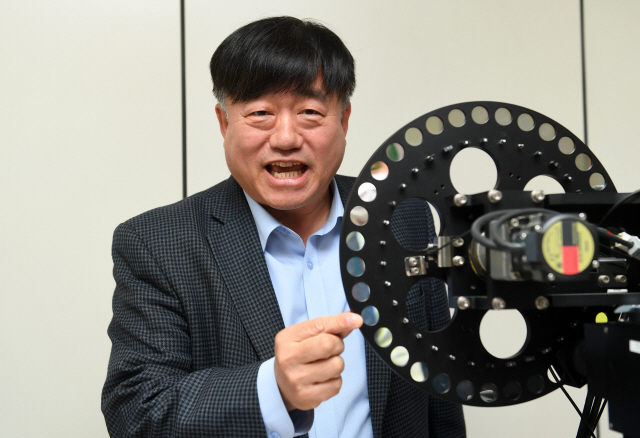
Prof. Heui Jah Pahk, head of the SNU AI Valley Commissio, is explaining the semiconductor and display testing equipment in his lab.
-Has anyone founded new ventures from your lab?
△We do semiconductor and display film testing research. One of my students from Vietnam went back to their home country after receiving their Ph.D. degree, and started a venture business. The company provides supplies for major businesses in Vietnam, including Samsung Electronics. I have taught over 100 Master’s and Ph.D. students, but there hasn’t been any attempts from Korean students. There ise student that I taught during their undergraduate years who worked at our company, founded their own business, then ended up selling it to an American company. I wonder why Korean graduate students or graduates do not start new ventures, even when they have had ample opportunities working and researching with companies. When a startup company starts to grow, it soon enters the ‘death valley,’ but there is no support system after that. The financial sector’s joint guarantee remains. A successful IPO has the possibility ofly 1-2%, exiting through M&A has the possibility ofly 1-2%. There must be stepping stones in the middle. The government should help. They must purchase the goods and services provided by startups and venture companies.
-You must have lots of concerns as the head of the SNU AI Valley Commission.
△I do. The startup ecosystem should be AI-oriented. But there are too many regulations, and the university in general lacks awareness. Financial support is lacking as well. In the beginning we called it ‘Nakseongdae Valley’ but changed it to ‘AI Valley,’ considering the possibility of boosting the economy of Sillim-dong. There should be lots of research and development activities in this district, full of startups, large companies, and global companies. M&As must be stimulated as well. I expect it will take more than 30 years to following the example of Silicon Valley. I hope that more professors will start working with Korean companies, demonstrating industry-academia cooperation and new venture businesses. But there is a lack of consensus in the university, which is quite frustrating. There is no such passion inside the laboratories. I almost wish to recruit Vietnamese students to get the venture businesses started.
-Silicon Valley used to be covered with orchards.
△Yes. That is how it started. In 1891 when Stanford University first opened its doors, the campus was surrounded by orchards. After the end of World War II, Frederick Terman—who was the dean of the School of Engineering back then—acquired a large amount of research funds to encourage new ventures for the graduated students. A venture business boom followed, and that’s how the Silicon Valley was formed. I hope to achieve the same thing with SNU AI Valley. We need an ecosystem with venture businesses and industry-academia cooperation, but the reality is tough. In order to establish AI Valley, we need government support from City of Seoul and the Ministry of Land, Infrastructure and Transport, because of green belt regulations and public park sites. The government should encourage innovative ventures. AI Valley is a masterplan that must be pursued in the long term, projecting 10-20 years into the future.
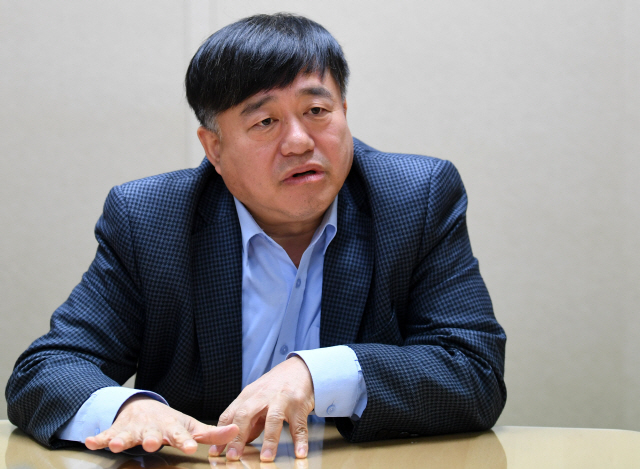
-Why don’t we talk to student researchers in the lab about this?
△(Showing the research equipment) Once you develop these kinds of basic technologies and publish a journal article, the technology is then released to the public. The university offers lots of financial support for publishing, but patents do not receive the same kind of attention, because patents require time and money, not to mention that they need to be innovative. Even in the case the quantity of patents is high, the quality does not get looked into. In my research lab, I ask students to work the patents first before publishing, and they do end up publishing a large amount. I have about 150 patents in Korea and overseas and published around 200 articles. My students work just as hard.
-Israel is also a country with booming venture businesses.
△Their ancestors were a diaspora. They wished their children to go into legal or medical professions, but things changed 15-20 years ago. Venture business owner became the top preference. This is due to NASDAQ listing and other success stories. Korea used to be such a country, when there was a venture boom during the Kim Dae-jung presidency. After the collapse of the dotcom bubble, venture businesses benefited from strong policies addressing regulations. I personally was encouraged by the words of Jang-mu Lee, the dean of the SNU College of Engineering back then. But these days, noe talks about ventures. Everyone is surviving their own. Back in the day, it was not allowed for professors to found a company and serve as the president, but the law changed. Now, however, I expect much resistance with regards to changing laws. Back then I was impressed by the gold-collecting campaign, and decided to contribute to the economy with my own technology. The dean’s support greatly encouraged me as well. I thought that the government will be willing to change the law facing such a national crisis. I talked to the government and the relevant committees. It took 2 years, but eventually the law was changed.
-Have things changed compared to then?
△Professors are able to teach students and make a living without doing anything else. Noe wants to take the risk. If we continue like this, in 10-20 years the society will start to question the role and responsibility of the university. The situation is much more difficult than the financial crisis in the past. There used to be a certain energy, but now it’s all gone. Noe is saying ‘Let’s figure this out together.’ Although the pandemic has impacted the world, this could be a chance, but the university is not taking the lead.
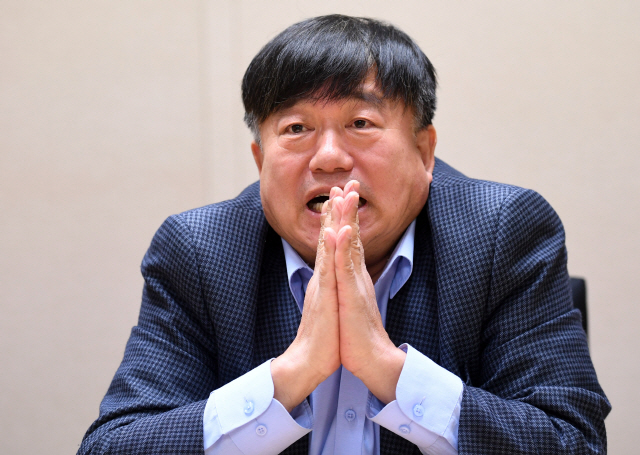
-You have successfully achieved KOSDAQ listing and also made large donations.
△In 2005, after the company was listed the KOSDAQ, I donated 8 billion won worth of my shares to Seoul National University. Jong-duk Lee, then-Director of the Semiconductor Research Center, called me at night to offer words of encouragement. He was the founder of the Research Center, taught many students, and established the Doyeon Academia Award, of which I was fortunate enough to be a recipient. Prof. Dong-won Kim, who has passed away, also encouraged me. So did Jang-mu Lee, the dean of College of Engineering. Surprisingly, however, no professor at SNU has broken my record for donation. I’ve asked Prof. Ki-won Lee of the College of Agriculture and Life Sciences to break my record and foster future leaders. If the university does not change its way of thinking, no financial support will be effective. Cultivating a good ecosystem should be the first goal. If Seoul National University fails to fulfill its proper role, the country will be affected. Fostering the AI Valley will be important in 20 years. The number of Nobel laureates does not matter much. Just as Stanford University started the Silicon Valley, China’s Tsinghwa University and Beijing University have their own Valleys. But Seoul National University has none. The Gwanak campus resides inside the green belt, situated too far away from the society. It is a good thing that the AI Valley is being talked about now. We should look into 20-30 years into the future.
/Kwang-bon Go kbgo@sedaily.com
Born in Gimpo, Gyeonggi Province in 1961. Finishing his Bachelor’s and Master’s degree at Seoul National University Department of Machinery Design, Prof. Pahk went to receive his Ph.D. degree from the University of Manchester Institute of Science of Technology. After teaching at the Department of Industrial Engineering at Pohang University of Science and Technology, he was appointed as a professor at SNU SNU Department of Mechanical Engineering. He founded SNU Precision Inc., Korea’s first university lab venture, during the Asian Financial Crisis in 1998. The company became a global leader in display and semiconductor test equipment market. He has received $70 Million Export Tower Award, Order of Industrial Service Merit Silver Tower, Admirable Science and Technology Person Award, the 1st Baeknam Engineering Award, IR52 Jang Young-shil Award, Distinguished Engineering Professor Award, SNU Alumni Association Gwanak Award, and SNU Development Achievement Award. 되고싶고 닮고싶은 과학기술인상, … He has also served as the 2nd Director of Strategic Planning at Ministry of Trade, Industry and Energy and the President of the Korean Association of Industrial Technology Security. Currently, he is a Member of the National Academy of Engineering of Korea, and the head of SNU AI Valley Commission. He received Higher Doctorate in Engineering from the University of Manchester last year.
Link to article : https://www.sedaily.com/NewsView/1ZA9I44PUU
